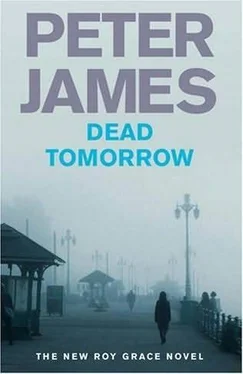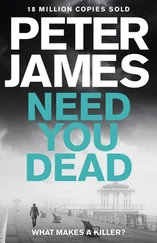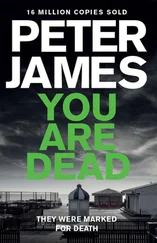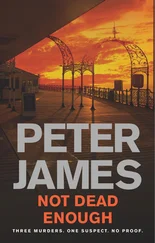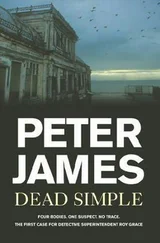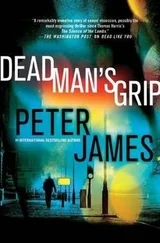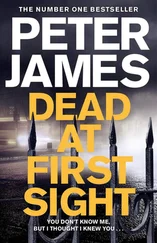A young Romanian anaesthetist, Bogdan Barbu, who had graduated five years ago from medical school in Bucharest, on a salary of 3,000 euros a year, was waiting to receive him.
Bogdan had thick black hair, brushed forward into a fringe, and designer stubble. With his tanned, lean features, hecould have passed for a tennis pro, or an actor. He already had the syringe, filled with a bolus of Benzodiazepine, prepared. Without needing instructions, he injected the pre-med into the upper arm of the unconscious Rares. It would be enough to keep him out for several more minutes.
Between them, they used the time to remove all of the young Romanian’s clothes and insert an intravenous cannula in his wrist. They then connected it to a drip-line of Propofol, fed by a pump.
This would ensure that Rares did not regain consciousness – but without causing any harm to his precious internal organs.
In the adjoining room, the main operating theatre of the clinic, an anaesthetized twelve-year-old boy, with a liver so diseased he had only weeks to live, was already being opened up by the junior surgeon, a thirty-eight-year-old Romanian liver transplant specialist, Razvan Ionescu. In his home country, Razvan could take home just under 4,000 euros a year – augmented a little with bribes. Working here, in this clinic, he was taking home more than 200,000. In a few minutes, dressed in green surgical scrubs, with magnifying glasses over his eyes, he would be ready to start removing the boy’s failed liver.
Razvan was assisted by two Romanian nurses, who placed the clamps, and every step was scrutinized, in microscopic detail, by one of the most eminent liver transplant surgeons in the UK.
The first rule of medicine which this surgeon had learned many years ago as a young student was, Do no harm .
In his view at this moment, he was doing no harm.
The Romanian street kid had no life ahead of him. Whether he died today or in five years’ time from drug abuse was of little consequence. But the English teenager who would receive his liver was altogether different. He was a talented musician, he had a promising future ahead of him. Of course, it was not up to doctors to play God, to decide who lived and who died. Nor was it up to them to value one human life over another. But the stark reality was that one of these two young men was doomed.
And he would never admit to anyone that the £50,000, tax-free, deposited into his Swiss bank account for each transplant he performed swayed his judgement in the slightest.
Shortly after half past twelve – half past one in Munich, Grace calculated – Kriminalhauptkommissar Marcel Kullen returned his call.
It was good to speak to his old friend and they spent a couple of minutes catching up on the German detective’s family and career news, from when they had last seen each other, all too briefly, in Munich.
‘So, no more information you have of Sandy?’ Kullen said.
‘Nothing,’ Grace replied.
‘Her photographs are still in every police station here. But so far, nothing. We are keeping trying.’
‘Actually, I’m starting to think it is time to wind down,’ Grace said. ‘I’m beginning the legal process to have her declared dead.’
‘ Ja , but I am thinking – your friend who has seen her in the Englischer Garten. We should look longer, I think, no?’
‘I’m getting married, Marcel. I need to move on, to have closure.’
‘Married? You have a new woman in your life?’
‘Yes!’
‘OK, good, so – I am happy for you! You want now that us stop to look for Sandy?’
‘Yes. Thank you for all you’ve done. But that’s not why I called you. I need help in a different direction.’
‘ Ja , OK.’
‘I need some information on an organization in Munich called Transplantation-Zentrale GmbH. I understand it is known to your police force.’
‘How are you spelling this?’
It took Grace several minutes, working patiently with the German detective’s broken English, to get the name across correctly.
‘Sure, I will check,’ Kullen said. ‘I call us back, yes?’
‘Please, it’s urgent.’
*
Kullen called him back thirty minutes later. ‘This is interesting, Roy. I am talking with my colleagues. Transplantation-Zentrale GmbH is under observation by the LKA for some months now. There is a woman who is the boss, her name is Marlene Hartmann. They have links with the Colombian mafia, with factions of the Russian mafia, with organized crime too in Romania, with the Philippines, with China, with India.’
‘What does the LKA know about them?’
‘Their business is the trafficking, internationally, of humans, and in particular in human organs. So it would seem.’
‘What action are you taking against them?’
‘At this stage, we are just information gathering, observing. They are on the LKA radar, you would say. We are looking to connect them with specific offences in Germany. Do you have information about them you can give to me for my colleagues?’
‘Not at the moment – but I’d like to interview Marlene Hartmann. Perhaps I could come over and do that?’
The German sounded hesitant. ‘OK.’
‘Is there a problem with that?’
‘Only – at this moment, according to the surveillance file, she is not in München – she is travelling.’
‘Do you know where?’
‘Two days ago she flew to Bucharest. We don’t have more information.’
‘But you will know when she is back in Germany?’
‘Yes. And we do know that she goes regularly to England.’
‘How regularly?’ Grace asked, his suspicions suddenly rising.
‘She flew into München from London last week. And also the week before.’
‘Presumably she was not on a winter-break holiday.’
‘Perhaps. Is possible,’ the German said.
‘No one in their right mind comes to England at this time of year, Marcel,’ Grace said.
‘Not to see the Christmas lights?’
Grace laughed. ‘She doesn’t sound the type.’
He was thinking hard. The woman was in England last week, and the week before. At some point in the past week to ten days three teenagers had been killed and their organs harvested.
‘Is there any possibility of obtaining this woman’s phone records, Marcel?’ he asked.
‘Her fixed lines or handy?’
Handy , Grace knew, was the German word for a mobile phone.
‘Both?’
‘I will see what I can do. Do you want all calls, or just those to the UK?’
‘Those to the UK would be a very good starting point. Do you have any plans to arrest her any time soon?’
‘Not just now. They want to keep watching her. There are other German human trafficking connections that she is linked to.’
‘Shame. It would have been good to have her computers looked at.’
‘I think on this we can help you.’ Grace could almost feel the Kriminalhauptkommissar smiling down the phone.
‘You can?’
‘We have a warrant issued by an Ermittlungsrichter for phone and computer records.’
‘By who?’
‘It is an investigating judge. The warrant is – how is it you say – in camera ?’
‘Yes – without the other party knowing.’
‘Exactly. And you know now in the LKA we have good technology for computer surveillance. I understand we have duplicates of all computer activity, including laptop away from the office, of Frau Hartmann and her colleagues. We have implanted a servlet.’
Grace knew all about servlets from his colleagues, Ray Packham and Phil Taylor in the High-Tech Crime Unit. You could install one simply by sending a suspect an email, provided he or she opened it. Then all activity on the suspect’s computer would be automatically copied back to you.
Читать дальше
